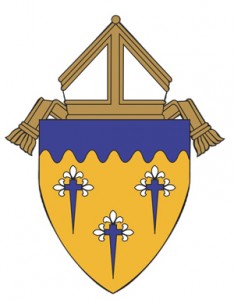Kathy Drinkwine
Safe Environment Coordinator & Coordinator of Assistance
The Diocese of Superior has received reports from victims for decades. Over the 20 years of the USCCB’s Charter for the Protection of Children and Young People, the Diocese of Superior has worked to assure that it is a simple process to report abuse. The Diocese has had a coordinator of assistance since the onset of the Charter. This individual’s role is to be the first and primary contact within the Diocese of Superior for reports of abuse. I have been honored to serve the people of the diocese in this role for more than 10 years.
Individuals may contact the coordinator of assistance by phone – both office and cell phone – or by email. Contact information for the coordinator of assistance is available:
* on the diocesan website,
* on posters (English and Spanish) provided to each parish and school that are to be posted in public, high-traffic areas of the buildings,
* published in the Catholic Herald four times each year,
* published in parish bulletins at least four times each year.
Note: Currently an edited bulletin announcement has been prepared for the weeks following the publication of the abusive clergy list – parishes have been asked to publish this for a number of consecutive months.
The diocese has provided a cell phone to the coordinator of assistance that is devoted to Charter-related activities only. Callers can be certain that only the coordinator of assistance has access to this phone and that confidentiality is assured. This cell phone may be called at any time. Any messages left on this phone will be answered within 24 hours.
Abuse-related calls sometimes come to the diocese via the general chancery phone line. All those answering that line know to transfer the call to the coordinator of assistance. When contacting the coordinator of assistance, callers can be assured that they will be treated with respect. Callers are not interrogated. They are allowed to share their experience in their own words. Clarifying questions may be asked. Notes will be taken.
What happens following an allegation of abuse will vary from case to case depending on the situation and the wishes of the victim/caller. The majority of calls received by the Diocese of Superior have been “historical” – the abuse happened years, maybe decades, ago, the victim is now an adult, and the accused may be deceased. The victim/caller has decided that it is time to report and to be heard by the church. Sometimes, this is a one-time call to release the emotional burden of this abusive experience. Sometimes there are multiple calls from a victim needing or wanting additional support. In all situations, the caller is listened to attentively and respectfully.
Many in the Diocese of Superior are mandated to report abuse to civil authorities by Wisconsin law – clergy, teachers, medical professionals, etc. Those working with children on behalf the Catholic Church are considered “mandated-to-report.” This is not a civil law but rather a directive of the Diocese of Superior to safeguard our children. Whether mandated by law or diocese, individuals have 24 hours to make this report. But sometimes, there is reasonable cause to believe that the child will endure further abuse before the report is made. These situations are called “imminent danger.” If the child is determined to be in imminent danger, local law enforcement and/or child protective services must be notified immediately. Every effort must be made to protect that child from further abuse.
In all situations, the coordinator of assistance takes many notes and informs the bishop as quickly as possible. The bishop then takes appropriate action. Depending on the circumstances, the accused may be immediately suspended from ministry pending further investigation.
In any situation where law enforcement takes an active role, the diocese will cooperate to the fullest extent. It will not do anything to impede civil investigations or judicial responses.
Though we have found that the majority of abuse allegations in this diocese are historical and the accused has been deceased for many years, we have also found that time does not diminish the injury to a victim’s body, mind, soul and faith. It takes a lot of courage to come forward, even if the abuse happened 75 years ago. The pain is raw no matter how long ago it was inflicted.
Some want to call. Some want to meet face-to-face. Some want to meet with the bishop. Counseling services may be offered. The comfort level of the victim is of primary importance. The coordinator of assistance remains available as needed as an advocate and source of support for the victim.
I am blessed – we are blessed – to be guided by Bishop Powers, who is devoted to the care and healing of victims of clergy sexual abuse. Over the years that I have served as the coordinator of assistance, I have been asked numerous times what it is like. I have been known to respond that sometimes I spar with the devil and other times I am guided by the angels. But all the time, I become a more caring and more compassionate person. It is truly a humbling experience to realize the strength and resilience of those harmed by clergy sexual abuse. In all of this, they are truly the heroes.
To make a report, please contact Kathy Drinkwine, Coordinator of Assistance, using one of these options: Office (during work hours): 715-394-0216, Cell (evenings & weekends): 715-718-1110. Or, email: .

